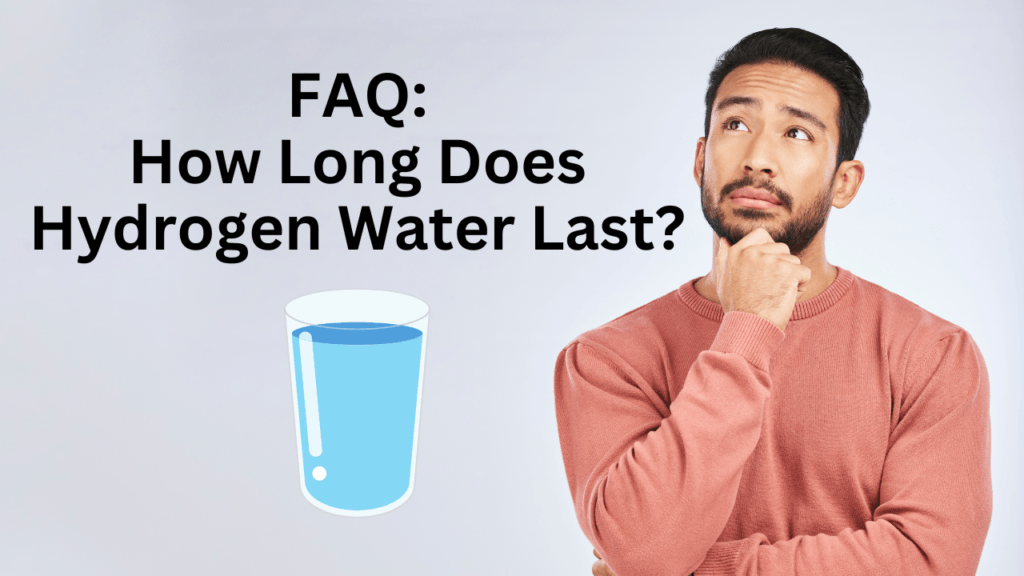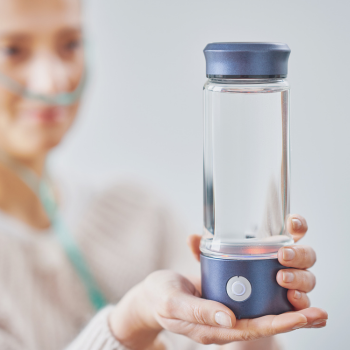
I’m often asked about the specifics of health trends, and recently, hydrogen water has been at the forefront of those inquiries. Hydrogen water is simply regular water that has extra hydrogen gas dissolved in it. This isn’t a new concept; water is, after all, made of hydrogen and oxygen. Yet, it’s the addition of more hydrogen gas that’s piqued interest due to the potential health benefits associated with it.
Research suggests that this enhanced water might have antioxidant properties, reduce inflammation, and increase energy levels. But I think it’s worth noting that while the science is promising, it’s crucial to approach such claims with a balanced view, scrutinizing the available research and seeking consensus from health professionals.
For those who’ve embraced hydrogen water, how it’s consumed matters. It’s generally recommended to drink it on an empty stomach, or at least 30 minutes before a meal. The reasoning here is straightforward: when consumed without food, there’s a greater chance for the hydrogen gas to be absorbed before stomach acid can diminish its presence. This can be especially relevant if you’re looking for optimal absorption into your bloodstream.
When I segue into the stability of hydrogen in water, which you’ll find in the upcoming section, I’ll delve into not just how long hydrogen water can maintain its efficacious state, but also the relationship between storage conditions and the preservation of hydrogen’s benefits.
Understanding Hydrogen Water Stability: How Long Does it Last?

When you’ve taken the time to make hydrogen water, you want to make sure you’re getting the most out of it. The key question is: How long does hydrogen water retain its unique benefits after you’ve created it? The stability and longevity of the dissolved hydrogen gas, H2, are crucial to the water maintaining its touted health advantages.
Several factors play a role in how long hydrogen remains in the water. First, the method of production can affect longevity. Electrolysis, for example, might infuse hydrogen more effectively than chemical reaction-based methods. Second, the material and design of the bottle are paramount; glass and special hydrogen-storing bottles are typically more effective than plastic at keeping hydrogen in.
Temperature, light exposure, and the seal of the bottle also play a significant part. It’s generally agreed that colder temperatures and limited light exposure prolong the benefits, while a tight, airtight seal is essential to prevent the gas from escaping.
So, how long can you expect your hydrogen water to last? While there isn’t a one-size-fits-all answer, it’s safe to say that hydrogen water begins to lose its high concentration of H2 after about 24 to 48 hours after production, which is why prompt consumption is encouraged.
To capitalize on these benefits, drinking your hydrogen water in a timely manner is key. It’s recommended that once you’ve produced or opened a bottle of hydrogen water, you aim to drink it within the first day or two. After that point, you’re likely to experience diminished returns as the hydrogen content decreases.
Now, knowing how crucial timing is, let’s walk through when exactly you should drink hydrogen water. Trust me, timing isn’t just about hours and minutes; it can actually maximize the potential health benefits you’ll reap.
Optimal Consumption: When to Drink Hydrogen Water

Knowing WHEN to drink hydrogen water can be as crucial as the water itself. Your body’s ability to absorb this molecule hinges on timing. The consensus among experts? Have it on an empty stomach. Here’s why: Your stomach’s acidic environment is less aggressive when it’s empty, providing a more welcoming medium for hydrogen molecules to pass through and eventually reach your bloodstream without being broken down prematurely.
Say you decide to drink it with breakfast. The influx of food raises stomach acidity, potentially negating the benefits you’re seeking. So, by waiting those 30 minutes before eating, you give hydrogen water a fighting chance to do its thing. And the outcome is worth the wait. By optimizing absorption, you’re ensuring that every sip is pulling its weight in your health regimen.
Beyond meals, consider the impact of your workout routine. The lure of improved recovery and performance has many reaching for their bottles post-training session. But is there a specific moment that’s best for guzzling down this antioxidant-infused elixir? Indeed, there is. AFTER exercise is your golden window. Here’s where science backs up the practice.
Enhancing Recovery: Hydrogen Water and Physical Activity

If you’re someone who sweats it out regularly, you know that recovery is just as crucial as the workout itself. That’s where hydrogen water enters the frame as a potential game-changer. A key piece of research published in the Journal of Sports Medicine and Physical Fitness sheds light on an exciting possibility: drinking hydrogen-infused water might just help you bounce back faster post-workout.
The study’s findings are intriguing. They suggest that athletes who drank hydrogen water after strenuous physical activity had lower levels of lactate in their blood. For those who might not be familiar, lactate is a byproduct of muscle metabolism that, when accumulated, contributes to the infamous next-day soreness and fatigue. By keeping lactate levels in check, hydrogen water could be the ally you need to stave off muscle aches and get ready for your next session sooner.
So, how does one weave hydrogen water into their fitness routine? It’s simple. After cooling down from your exercise, reach for a bottle of freshly made hydrogen water. Remember, fresh is best—this ensures that you’re getting the optimal concentration of hydrogen. The goal here is to strike while the iron is hot, or in this case, right when your muscles are most receptive to recovery aids following your cool-down.
Keeping the dialogue on physical activity and wellness going, in the next section, I’ll explore how hydrogen water may be more than just a post-workout beverage. Beyond muscle recovery, people are looking to hydrogen water as a nightly ritual to potentially enhance their sleep quality. Stay with me as I delve into the connection between sipping on hydrogen-rich water and slipping into a peaceful slumber.
The Role of Hydrogen Water in Sleep and Relaxation

You might have not considered the relationship between what you drink and how you sleep, but emerging research suggests there’s a connection worth exploring. Specifically, hydrogen water holds potential for those seeking sounder slumber and better relaxation. A study published in the Journal of Clinical Sleep Medicine sheds light on this, revealing that participants who consumed hydrogen-rich water for four weeks enjoyed notable improvements in their sleep quality.
While the mechanisms behind these benefits are still being understood, it’s thought that the antioxidant properties of hydrogen may play a role in reducing oxidative stress, which is known to interfere with sleep. By incorporating hydrogen water into your evening routine, you might find a subtle yet effective way to enhance your sleep experience.
For many, the quest for better sleep is ongoing, and while hydrogen water is no panacea, it’s an adjunct worth considering. To maximize the potential sleep-promoting effects, consider drinking a bottle of freshly made hydrogen water before you retire for the night. This practice, combined with good sleep hygiene, may just provide the extra edge you need for a more restful and rejuvenating sleep.

